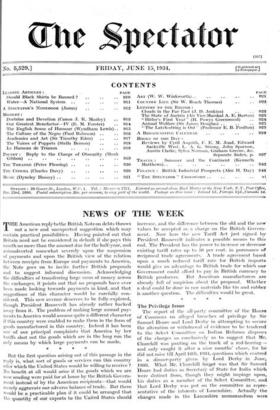But the first question arising out of this passage in
the reply is, what sort of goods or services can this country offer which the United States would be willing to receive ? No benefit at all would arise if the goods which we are now sending were paid for at home by the British Govern- ment instead_of by the American recipients—that would merely aggravate our adverse balance of trade. But there Would be a practicable plan if it could be arranged that the quantity _of our exports to the United States should increase, and the difference between the old and the new values be accepted as a charge on the British Govern- ment. Now here the new Tariff Act just signed by President Roosevelt indicates a possible means to this end. The President has the power to increase or decrease existing tariff rates up to 50 per cent. in pursuance or reciprocal trade agreements. A trade agreement based upon a much reduced tariff rate for British imports would give an advantage to British trade for which our Government could afford to pay in British currency to British producers. But American manufacturers are already full of suspicion about the proposal. Whether a deal could be done in raw materials like tin and rubber is another question. The difficulties would be great.
*
















































